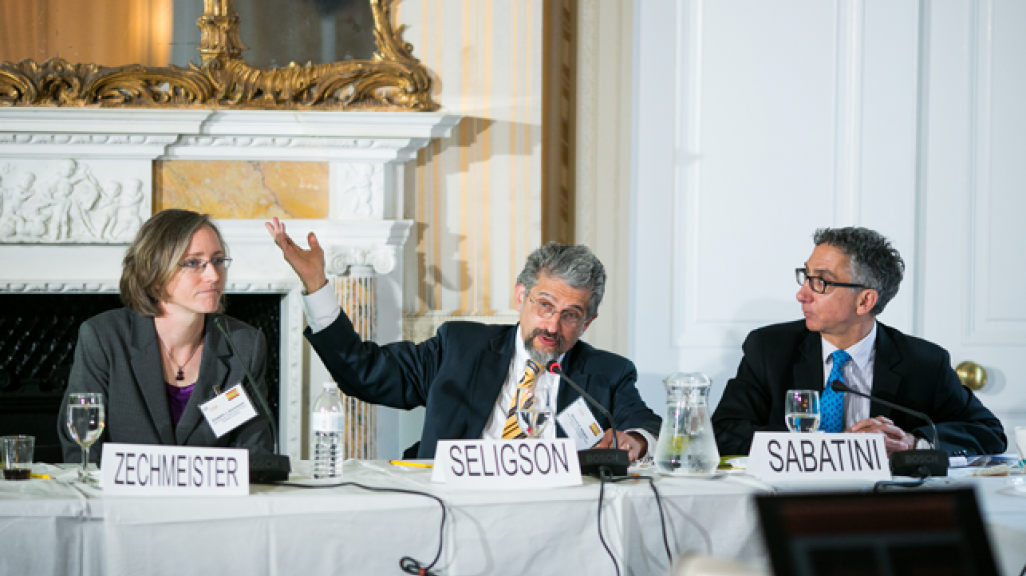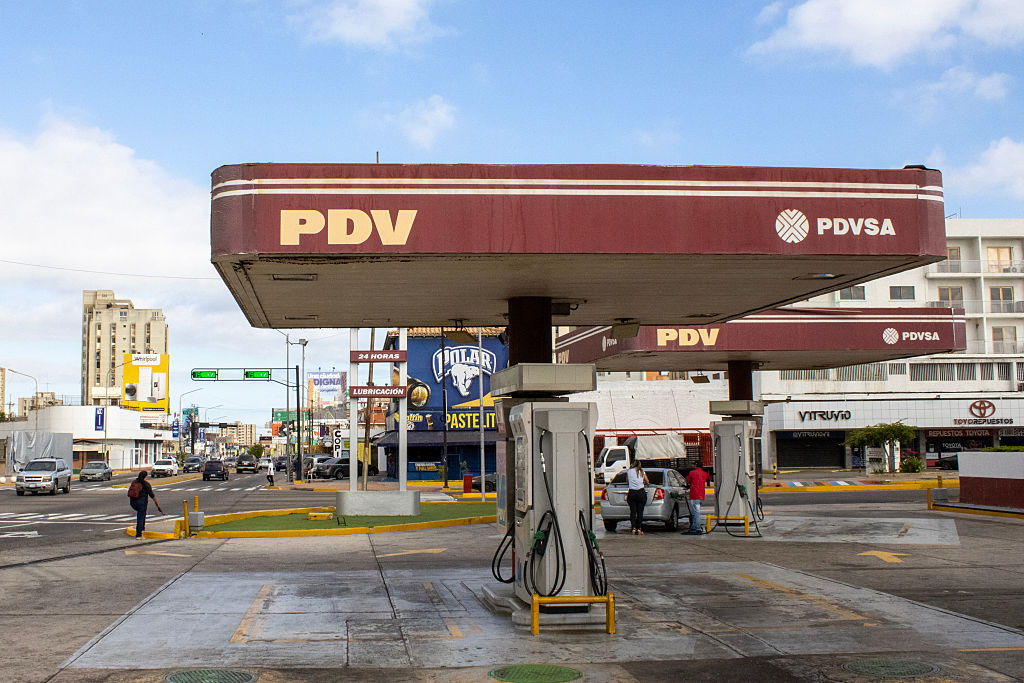Summary: Citizen Insecurities and Democracy - LAPOP's 2014 AmericasBarometer Report
Summary: Citizen Insecurities and Democracy - LAPOP's 2014 AmericasBarometer Report
The new survey results show heightened concerns about insecurity and impunity in the hemisphere.
Welcoming Remarks:
- Christopher Sabatini, Editor-in-Chief, Americas Quarterly; Senior Director of Policy, Americas Society/Council of the Americas
Presenters:
- Mitchell Seligson, Founder and Senior Advisor of the Latin American Public Opinion Project at Vanderbilt University
- Elizabeth Zechmeister, Director of the Latin American Public Opinion Project at Vanderbilt University
Summary
On November 24, AS/COA hosted a lunch and discussion on citizen insecurity and its impact on democracy featuring early results from the Latin American Public Opinion Project (LAPOP) report The Political Culture of Democracy in the Americas, 2014: Democratic Governance across 10 Years of the AmericasBarometer, later released on December 3.
LAPOP’s Mitchell Seligson and Elizabeth Zechmeister gave an advance preview of the 2014 AmericasBarometer survey and presented research showing how respondents from 28 Latin American countries perceive security and its relationship with democracy. Preliminary results of the survey, which involved approximately 50,000 interviews conducted between January and October 2014, showed heightened concerns about insecurity and impunity in the hemisphere. Over the last decade, LAPOP found that democratic legitimacy has declined in the Americas, partly due to increased insecurity caused by crime.
Security Concerns on the Rise
In his opening remarks, Christopher Sabatini explained how Americas Quarterly and LAPOP collaborated in the past, using LAPOP’s research as a point of reference for AQ’s annual Social Inclusion Index to understand differences in attitudes and behaviors across the region.
Zechmeister explained LAPOP’s methods and findings, reporting that concerns about the economy decreased in the last decade, while concerns about security rose. The latest data shows that four out of five interviewees worried about a family member being assaulted on public transportation, and 85.8 percent were concerned to some degree about their children’s safety at school. Over half of respondents said that their neighborhoods were affected by gangs, and almost 50 percent reported a burglary in their neighborhood at some time during the past 12 months.
Inadequate police responsiveness was one of the major problems identified in 2014. Slow police response times correlated with an overall dissatisfaction with police. “People decrease their support for the system when they see that system as unresponsive,” said Zechmeister.
However, the type of crime reported in the survey varied by location. For example, Argentine respondents reported the highest percentage of burglaries (71.8 percent), but they reported a lower percentage of murders (13.9 percent, compared to 51.1 percent of Brazilian respondents).
Crime and insecurity affect personal decisions, with survey results revealing that insecurity is a positive predictor of support for vigilante justice, as well as the intention to emigrate. Zechmeister acknowledged that people who pay more attention to the media tend to have higher perceptions of insecurity, but these perceptions are also grounded in citizens’ experiences, since crime victimization is associated with greater feelings of insecurity.
Insecurity: A Threat to Democracy
The research found that democratic legitimacy in the region stands at risk, as trust in federal police, justice systems, and the courts declined from 2012 to 2014. According to Seligson, “there is support across the Americas and across time for democracy as the best political system.” But new data shows that trust in political institutions across the region fell to the lowest level since 2006. As trust in political institutions declines, there has been a significant increase in public approval for more punitive crime prevention measures.
The data also revealed that political tolerance went down across the region and that democracy is most at risk in countries such as Guatemala, Haiti, Panama, and Peru, with low levels of system support in addition to low political tolerance. Zechmiester and Seligson found that perceived insecurity is linked to lower political tolerance, but ironically, neighborhood violence and victimization is linked to higher political tolerance. Countries such as Canada, the United States, and Uruguay, which have the highest levels of tolerance and system support, are shown to have the most stable democracies.
Next Steps: Surveying the Americas
After the presentation, audience members participated in the discussion. Roland López, a retired homicide detective, suggested that future LAPOP research should also focus on white collar crime, especially with so many citizens concerned about ongoing corruption in Washington and perceptions of the United States “policing the world.”
Another participant, Felicitas Kort, recommended adding questions to gauge whether or not crime victimization correlates with citizens’ feelings of helplessness and hopelessness, as well as community fragmentation. She also suggested including questions on life satisfaction, saying that crime can take a toll on happiness, and that while anger may inspire people to take action, despair can demobilize citizens.









